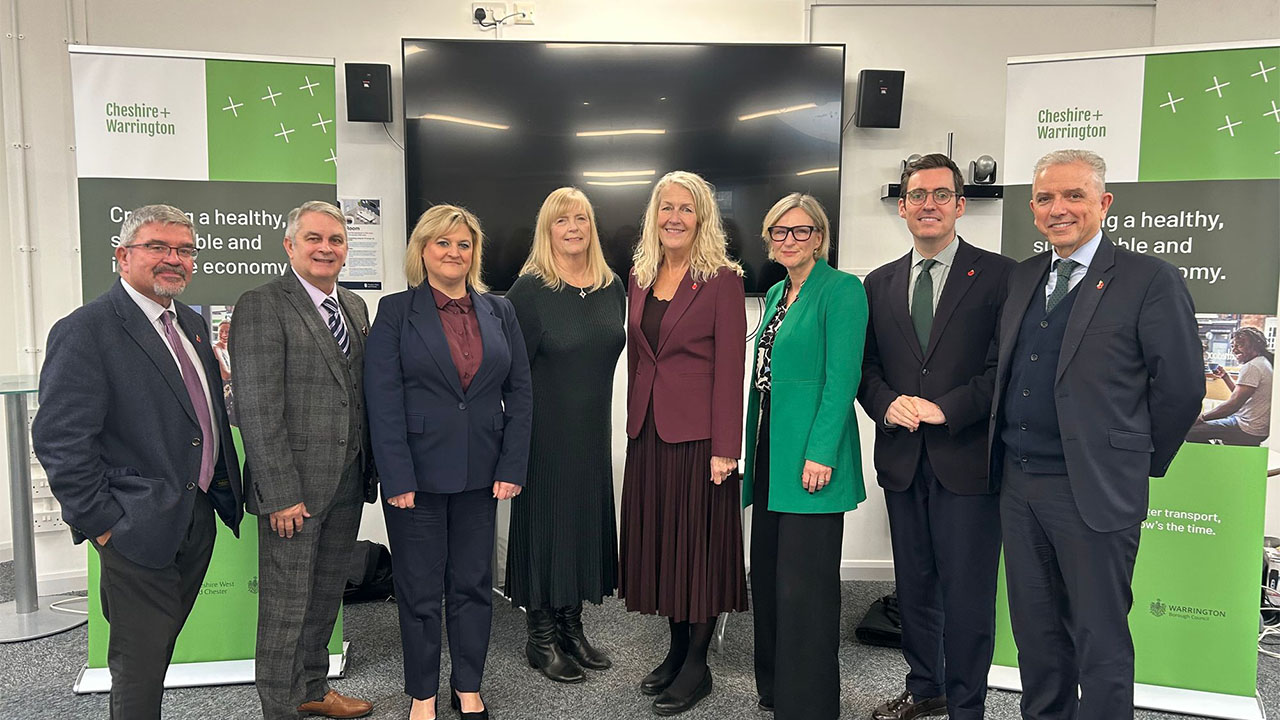Ex-Forces Recruitment supplies skilled former military services personnel into high technology sectors such as automotive, aerospace, engineering and construction. All businesses are currently looking for highly skilled people and the recruitment opportunities are huge. What sets us apart is that we work by reputation rather than by price. Our clients (many of whom have been with us as friends for many years) know that we will find them the talent the need: disciplined, highly skilled and motivated. We have demonstrated time and time again that ex-armed forces and services personnel are exactly what growing businesses need and will increasingly rely upon when we leave the EU.
We work in six main sectors: automotive, aerospace, construction, engineering, hospitality and catering and social care.
For over 25 years we have established strong global connections with some of Europe’s most prestigious automotive OEMs. Today we are still growing in the automotive recruitment sector as it moves into new areas of development such as Autonomous and Self Drive, Hybrid and Electric vehicles. Our automotive client base has encompassed Royal Enfield, Aston Martin, Bentley Motors, Jaguar Land Rover, McLaren, Volkswagen, Hyundai and Volvo.
We provide permanent, contract and interim solutions across three dedicated areas: product development, manufacturing and commercial over the complete product lifecycle supporting passenger car, motorcycle and commercial vehicle applications.
We have formed firm partnerships with clients ranging from OEMs, 1st and 2nd Tier Suppliers and SME’s, to bespoke, prestigious and niche automotive brands for the more discerning clientele. We put our best endeavours into focusing on continuous improvement, gaining relevant feedback from our clients regarding our delivery of recruitment services just to make sure to that we keep our position at the forefront of industry changes.
Many of our consultants are industry specialists from relevant engineering backgrounds, including full-vehicle development, powertrain, electrical and electronics, mechanical engineering, quality, MP&L, and design services and we pride ourselves on our in-depth understanding of the skills, experience and personal attributes needed for specialist automotive engineering roles. We also ensure that we are in a position through collaboration with specialist training companies to re-skill candidates who require additional qualifications or training. This will give them the best foot up to be positioned in the right roles.
In 2017 ADS’ Aerospace Recruitment Outlook shows the UK aerospace industry employing 120,000 people and supporting a further 118,000 jobs indirectly. Employers vary from substantial multinational entities to small entrepreneurial firms and fast-paced start-ups.
The UK aerospace industry is the largest in Europe and second only to the US with sales in the sector of £31.8bn in 2017, 8% up on the previous year. According to the data, the aerospace industry has expanded 39% in five years. 90% of sales, worth £27.7bn, is exports. The UK is Boeing’s third-largest supplier, after the US and Japan, and the company spent £2.1bn with its suppliers last year alone. There are 3,800 apprenticeships in the sector, and 60% of aerospace companies expect to see growth in business exceed 10%.
Aerospace is apparently a vital sector of the UK economy, and if your military career covered similar areas, you could be sure that there are jobs waiting for you in civilian life in every size of company. A third of the UK’s aerospace businesses are concerned about where they are going to find the skills they need to accelerate innovation and keep ahead of the competition. Your skills could be vital to the sector. The sector is diverse: aerospace manufacturing covers building the airframes or other components which make up the aircraft such as the landing gear, engines or avionics systems. A career in aircraft maintenance means travelling the world maintaining, inspecting and servicing aircraft to high international safety standards. You may choose to specialise in mechanics (engines, airframes) or avionics (instrumentation, electrical/electronic equipment). Aircraft engineers work for airlines, maintenance divisions of aerospace manufacturers or specialist aircraft maintenance companies.
The average salary in the UK Aerospace sector is £41,600. This is 51% more than the UK average.
The UK has the third largest aviation network in the world. It was the most extensive air transport system in Europe in 2015, serving 250 million terminal passengers. The UK has direct connections to over 370 international destinations with at least a weekly service and nearly 200 with at least a daily service from at least one UK airport.
The aviation sector has seen significant growth. In 2015 there were 3.3 billion air passengers worldwide. Asia and the Pacific accounted for the most significant proportion of world air traffic in 2014, representing 7% growth. This was followed closely by Europe and North America who also displayed a substantial share of world air traffic. Global demand for seats has grown on average by 5.5% per year.
The UK aviation sector generates a turnover of £60.6 billion. It supports 961,000 UK jobs, many of them high skill and high productivity jobs. It contributes £52 billion to UK GDP, and it supports 3,500 apprenticeships. If you want to design aircraft, build aircraft, maintain aircraft, fly aircraft or support the industry from a wide range of well-paid and interesting jobs, please contact us. Our experts will be ready to talk to you. Our customers include specialists such as Air Livery and Airbourne Colours.
The Construction Products Association expected the sector to grow by 1,2% in 2018 and 2.3% in 2019. Within the sector they expect infrastrstructure to grow by over 11% in 2018 and private housing to grow by 3%. For infrastructure, water & sewerage is expected to grow by 12% in 2018; growth ion rail construction is expected to reach 10% in 2018 and 20% in 2019; Energy infrastructure activity is expected to grow by 14% in 2018 and 20% in 2019. Despite the vulnerability of certain sectors such as retail and offices to economic conditions, the need for workers remains high, particularly in new technology. To fix the demand for social housing, the government will need to look at newer and faster ways of building accommodation. Many countries are looking at manufacturing components of houses or commercial buildings in factories with assembly on site.
According to The Independent in February 2018, 150,000 UK construction jobs will be added over the next five years. The Construction Industry Training Board (CITB) predicts 15,350 carpenters and 9,350 labourers will be needed as more homes are built. The strongest job growth in the sector is expected to be in a range of professional and managerial roles as the industry seeks to boost its productivity: these are expected to be at the rates of 7.8% and 5.6% respectively. the CITB expects 1.8 million people to be working in construction by 2022. Our customers include the Alderminster Group, Horgan Homes and the Woodward Group.
Engineering is responsible for developing and implementing some of the solutions to major global challenges. UK engineering has a world-leading position across the range of knowledge-intensive industrial industries involved in scientific and technological research and innovation that results in addressing these global challenges. Engineering is responsible for 44% of UK exports according to the EEF. Britain is the world’s 8th largest manufacturer.
According to Engineering UK, It is estimated that engineering contributed £486 billion to UK GDP in 2015 – around 26% of the total and representing 2.3% growth since 2014. In 2015, the number of engineering enterprises in the UK grew by 7% over the previous year, to 650,000. Nearly 5.7 million employees work in engineering enterprises in the UK, representing just over 19% of total UK employment. 265,000 skilled entrants required annually to meet the demand for engineering enterprises through to 2024. That is more than 2.5 million job opportunities over a ten-year period.
The average salary, in 2015, for all those in full-time engineering occupation employment was £33,689 compared to a UK average of £27,645. Average earnings for some mainstream engineering roles look strong and are enjoying more significant rises – such as civil engineers at over £42,500 (up 5%) and mechanical engineers (over £45,000, up 3.6%). In 2016 the Office of National Statistics said that the average manufacturing salary was £32,047 compared to a national average of £28,299.
Our engineering customers include Wabtec, the EEF, Architectural Building Fabrications, Crown Fabrications, Ardent Hire, Stevenage Sheet Metals and Tiger Doors.
The hospitality and leisure industry embraces a spectrum of sectors and businesses across hotels, pubs and restaurants, travel and tourism, sport and leisure and gaming. The Joseph Rowntree Foundation recently undertook an analysis of the hospitality industry and pointed to the positive impact of ICT, digital, logistics and customer service skills to the productivity of the sector. If you are a former member of the armed forces or a member looking to enhance your civilian prospects, your skills will place you well for rapid promotion within this fast-growing sector.
The British Hospitality Association reports that by 2019, when we are due to leave the EU, the sector will have 60,000 vacancies. By 2029, the recruitment shortfall could be 1,000,000 workers. According to PwC UK the Hospitality sector is our 6th largest contributor to export earnings and 4th largest employer – accounting for 4.49 million people or 10% of the workforce and over 180,000 businesses.
The growth in the hospitality industry is reflected by the fact that employment opportunities for skilled people in the UK have increased exponentially. The increasing investment in the sector has created job opportunities in diverse areas like business managers, finance managers, contract caterers and event organizers. There are about 22,000 hotels, motels and guest houses in the UK. Apart from these, there are more than 16,000 breakfast restaurants in the entire UK. These figures are expected to grow in the coming years with greater foreign investment coming in the country.
According to the Health Foundation, there are over 80,000 vacancies for adult social care jobs in England alone at any given point. It is a very dynamic sector (there are plans to integrate health and social care) and very rewarding for those whose vocation and experience match the requirements of their roles. There are expected to be 1.7 million new job opportunities by 2020.
In 2016 there are an estimated 20,300 organisations in England providing adult social care alone with about 1.6 million people working in the sector (1.5% more than 2015 and 19% more than 2009).
The health care sector is looking for professionals and world-class managers. The greatest needs are for planning, communication, customer handling, team working and problem-solving skills. 52% of vacancies are in care related occupations.
Social care faces considerable challenge in looking after the needs of the elderly, the infirm and in helping young disillusioned people find their way back into society.









